November 1 stands as one of history’s most eventful days, witnessing the rise and fall of empires, groundbreaking discoveries, and moments that shaped our modern world across centuries of human achievement.

Politics and Government Events on November 1
1922 – Abolition of the Ottoman Sultanate
The last sultan of the Ottoman Empire, Mehmed VI, formally abdicated his throne on this historic date. This momentous decision marked the definitive end of over six centuries of Ottoman rule.
The abolition paved the way for Mustafa Kemal Atatürk’s revolutionary transformation of Turkey into a modern republic. The sultanate’s dissolution forever altered the political landscape of the Middle East and southeastern Europe.
1950 – Assassination Attempt on President Truman
Puerto Rican nationalists Griselio Torresola and Oscar Collazo launched a bold assassination attempt against President Harry S. Truman at Blair House. The attackers sought to draw international attention to Puerto Rican independence.
Secret Service agents and White House police engaged the gunmen in a fierce firefight. Torresola died in the confrontation while Collazo was wounded and captured, leading to enhanced presidential security protocols.
1956 – Hungarian Revolution Escalates
Prime Minister Imre Nagy announced Hungary’s neutrality and withdrawal from the Warsaw Pact during the height of the revolution. Soviet forces simultaneously began re-entering Hungary despite previous assurances of non-interference.
János Kádár and Ferenc Münnich secretly defected to the Soviet side, betraying the revolutionary cause. This political maneuvering set the stage for the brutal Soviet suppression that would crush Hungarian hopes for independence.
1963 – South Vietnamese Coup Begins
Military leaders initiated a carefully orchestrated coup against President Ngô Đình Diệm’s increasingly unpopular regime. The conspiracy involved key generals who had grown frustrated with Diệm’s authoritarian rule and religious persecution.
The coup’s success would dramatically reshape South Vietnam’s political landscape during the escalating conflict. American officials, despite prior knowledge of the plot, maintained an ambiguous stance toward the unfolding events.
1973 – Watergate Investigation Continues
Leon Jaworski received his appointment as the new Watergate Special Prosecutor, replacing the dismissed Archibald Cox. His selection came after the Saturday Night Massacre had triggered a constitutional crisis.
Jaworski’s methodical investigation would ultimately lead to President Nixon’s resignation the following year. His appointment restored public confidence in the independence of the special prosecutor’s office.
1979 – Bolivian Military Coup
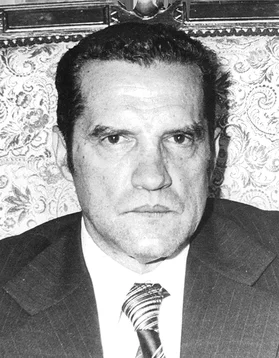
Colonel Alberto Natusch executed a bloody coup d’état against the constitutional government of President Wálter Guevara. The military intervention plunged Bolivia into political chaos and violence.
Widespread civilian resistance and international condemnation forced Natusch to relinquish power within weeks. The failed coup demonstrated the fragility of democratic institutions in 1970s Latin America.
1991 – Chechen Independence Declaration
President Dzhokhar Dudayev declared the sovereignty of the Chechen Republic of Ichkeria from the Russian Federation. This bold proclamation ignited a separatist movement that would define the region for decades.
The declaration set in motion a series of conflicts that would devastate Chechnya and challenge Russian territorial integrity. Dudayev’s actions marked the beginning of the First Chechen War and years of brutal fighting.
1993 – European Union Formally Established

The Maastricht Treaty took effect, formally establishing the European Union as a supranational entity. This historic milestone transformed European integration from economic cooperation into political union.
The treaty created European citizenship and laid the groundwork for the euro currency. Its implementation represented the most significant step toward European unification since the Treaty of Rome.
Military and Naval History on November 1
1911 – First Combat Aerial Bombing
Second Lieutenant Giulio Gavotti of Italy conducted the world’s first combat aerial bombing mission over Libya. His historic flight marked the beginning of aerial warfare during the Italo-Turkish War.
Gavotti dropped several small bombs from his monoplane, targeting Ottoman positions near Tripoli. This pioneering mission revolutionized military strategy and forever changed the nature of warfare.
1914 – Battle of Coronel
The British Royal Navy suffered its first major defeat of World War I off the western coast of Chile. HMS Good Hope and HMS Monmouth were lost in this devastating Pacific engagement.
German Admiral Maximilian von Spee’s squadron achieved a decisive victory against the British cruiser squadron. The defeat shocked the British Admiralty and demonstrated German naval prowess in distant waters.
1918 – Italian Naval Commando Operation
Two officers of the Italian Regia Marina executed a daring raid using a manned torpedo in the Austro-Hungarian port of Pula. Their courageous action successfully sunk the enemy battleship SMS Viribus Unitis.
The operation demonstrated the effectiveness of innovative naval warfare tactics in the war’s final phase. This bold mission became a legendary example of Italian naval commando operations.
1942 – Matanikau Offensive Begins
American forces launched the Matanikau Offensive during the crucial Guadalcanal Campaign in the Solomon Islands. This three-day operation aimed to eliminate Japanese resistance west of Henderson Field.
The offensive concluded with a decisive American victory that secured vital airfield operations. The successful campaign marked a turning point in the Pacific Theater’s island-hopping strategy.
1944 – British Landing at Walcheren
British Army units conducted amphibious landings at Walcheren Island in the Netherlands during Operation Infatuate. The assault aimed to clear German forces from the strategically vital Scheldt Estuary.
The operation opened the port of Antwerp for Allied shipping, crucial for sustaining the European offensive. Despite fierce German resistance, British forces successfully established their beachhead.
1954 – Algerian War of Independence Begins
The Front de Libération Nationale fired the first shots of the Algerian War of Independence against French colonial rule. Coordinated attacks across Algeria marked the beginning of an eight-year struggle for independence.
The FLN’s carefully planned offensive targeted French military installations and colonial infrastructure. This revolutionary action would eventually lead to Algerian independence in 1962.
Science and Discovery Milestones on November 1
1952 – First Thermonuclear Device Detonated
The United States successfully detonated Ivy Mike, the first thermonuclear device, at Eniwetok Atoll in the Pacific. The explosion yielded ten megatons TNT equivalent, demonstrating unprecedented destructive power.
This technological breakthrough marked the beginning of the hydrogen bomb era and escalated the nuclear arms race. The test’s massive yield dwarfed previous atomic weapons and changed global strategic calculations.
1963 – Arecibo Observatory Opens
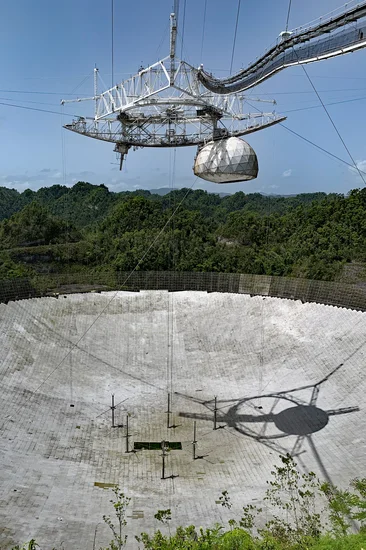
The Arecibo Observatory in Puerto Rico officially opened, featuring the world’s largest radio telescope at the time. This massive 1,000-foot dish revolutionized radio astronomy and atmospheric science research.
The facility would make groundbreaking discoveries about pulsars, planets, and the structure of the universe. Arecibo’s unique design and location made it invaluable for both astronomical observation and planetary radar studies.
1941 – Ansel Adams’ Iconic Photograph
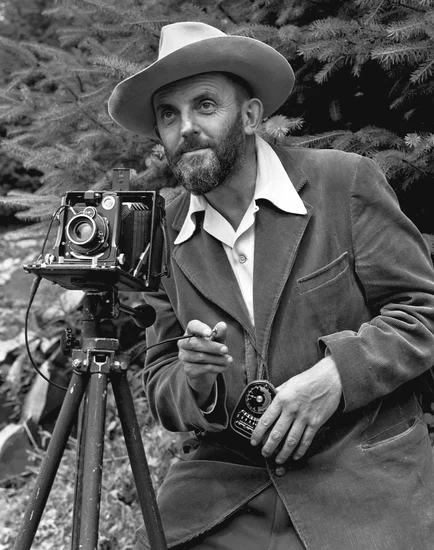
Photographer Ansel Adams captured “Moonrise, Hernandez, New Mexico,” which became one of the most famous images in photography history. The dramatic landscape photograph perfectly embodied Adams’ zone system technique.
The image’s striking contrast between the moonlit sky and shadowed foreground created an enduring masterpiece. Adams’ technical mastery and artistic vision established new standards for landscape photography.
Cultural and Arts Events on November 1
1968 – MPAA Film Rating System Introduced
The Motion Picture Association of America officially introduced its film rating system with the classifications G, M, R, and X. This voluntary system replaced the restrictive Hays Code that had governed Hollywood for decades.
The new ratings provided parents with guidance while allowing filmmakers greater creative freedom. The system’s implementation marked a significant shift toward more mature and realistic content in American cinema.
1928 – Turkish Alphabet Reform
Turkey adopted the Law on the Adoption and Implementation of the Turkish Alphabet, replacing the Arabic script with the Latin alphabet. This sweeping reform was part of Atatürk’s modernization program.
The change dramatically improved literacy rates and connected Turkey more closely with Western Europe. This cultural transformation symbolized the new republic’s break with its Ottoman past.
1923 – Finnair Founded
The Finnish airline Aero O/Y, now known as Finnair, was founded on this date. The airline began operations with a single aircraft serving domestic routes.
Finnair would grow to become one of the world’s oldest continuously operating airlines. The company’s founding marked Finland’s entry into the age of commercial aviation.
Religious and Social Events on November 1
1918 – Western Ukraine Separates
Western Ukraine formally declared its separation from the collapsing Austro-Hungarian Empire. This nationalist movement sought to establish Ukrainian independence after centuries of foreign rule.
The declaration reflected the broader dissolution of multi-ethnic empires following World War I. Ukrainian leaders aimed to create a unified, independent state encompassing all Ukrainian territories.
1948 – Athenagoras I Enthroned

Athenagoras I was formally enthroned as Ecumenical Patriarch of Constantinople, assuming leadership of Eastern Orthodox Christianity. His patriarchate would span nearly three decades of significant religious and political change.
Athenagoras worked tirelessly to heal the historic schism between Eastern and Western Christianity. His meetings with Pope Paul VI marked unprecedented steps toward Christian unity.
1984 – Anti-Sikh Riots Erupt

Following the assassination of Prime Minister Indira Gandhi by her Sikh bodyguards, devastating anti-Sikh riots erupted across India. The violence claimed thousands of lives and displaced entire communities.
The riots exposed deep religious and ethnic tensions within Indian society. The tragedy highlighted the dangerous consequences of communal violence and political manipulation.
Business and Economic Events on November 1
1982 – Honda Opens U.S. Factory
Honda became the first Asian automobile manufacturer to produce cars in the United States with its Marysville, Ohio factory opening. The first Honda Accord rolled off the production line on this historic date.
This milestone marked a fundamental shift in global automotive manufacturing patterns. Honda’s success paved the way for other Asian manufacturers to establish American operations.
2009 – Mario Draghi Becomes ECB President
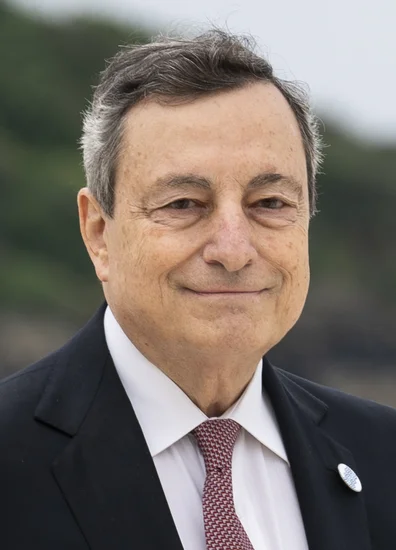
Mario Draghi succeeded Jean-Claude Trichet as the third president of the European Central Bank. His appointment came during the ongoing European debt crisis.
Draghi’s leadership would prove crucial in stabilizing the eurozone through innovative monetary policies. His famous pledge to do “whatever it takes” helped preserve the European monetary union.
1955 – American Military Advisors Arrive in Vietnam
The establishment of a Military Assistance Advisory Group in South Vietnam marked the beginning of direct American military involvement. This initial commitment would gradually escalate over the following decade.
The advisory group’s mission was to train and equip South Vietnamese forces against communist insurgency. This seemingly limited engagement would eventually draw America into a prolonged and costly conflict.
Transportation and Infrastructure on November 1
1957 – Mackinac Bridge Opens

The Mackinac Bridge opened to traffic, connecting Michigan’s upper and lower peninsulas with the world’s longest suspension bridge between anchorages. The engineering marvel spanned the Straits of Mackinac with unprecedented scale.
The bridge’s completion fulfilled a long-held dream of connecting Michigan’s separated regions. Its construction required innovative engineering solutions to withstand harsh weather conditions and strong currents.
1918 – Malbone Street Wreck

The worst rapid transit accident in U.S. history occurred at the intersection of Malbone Street and Flatbush Avenue in Brooklyn. At least 102 people died when a speeding train derailed in a tunnel.
The disaster led to sweeping safety reforms in rapid transit systems nationwide. The tragedy highlighted the dangers of inadequate training and excessive speed in urban transportation.
1987 – British Rail Speed Record

A British Rail Class 43 High Speed Train achieved a record speed of 238 km/h for rail vehicles using on-board fuel to generate electricity. This achievement demonstrated the potential of advanced diesel-electric technology.
The record showcased British engineering excellence in high-speed rail development. The HST’s success influenced rail transport development across Europe and beyond.
Sports and Recreation on November 1
1938 – Seabiscuit Defeats War Admiral
Seabiscuit delivered a stunning upset victory over War Admiral in the “Match of the Century” at Pimlico Race Course. The race captivated Depression-era America and drew massive crowds.
The underdog’s triumph symbolized hope and perseverance during difficult economic times. Seabiscuit’s victory became one of the most celebrated moments in American sports history.
1955 – United Airlines Flight 629 Bombing

A bomb exploded aboard United Airlines Flight 629 near Longmont, Colorado, killing all 44 people on board. The deliberate act of sabotage shocked the aviation industry and American public.
The investigation revealed that Jack Graham had planted the bomb to collect insurance money on his mother’s life. This tragic event led to enhanced airport security measures and baggage screening procedures.
1949 – Eastern Airlines Flight 537 Collision
All 55 people aboard Eastern Airlines Flight 537 perished when their Douglas DC-4 collided with a Bolivian Air Force P-38 Lightning over Alexandria, Virginia. The mid-air collision demonstrated the need for improved air traffic control systems.
The tragedy highlighted the growing dangers of increased air traffic in the post-war era. The accident prompted significant improvements in aviation safety protocols and aircraft separation procedures.
Notable Births on November 1
1902 – Tim Cook, Apple CEO

Tim Cook was born in Mobile, Alabama, beginning a journey that would lead him to become CEO of Apple Inc. His early interest in technology and business shaped his future career trajectory.
Cook’s leadership transformed Apple into the world’s most valuable company. His emphasis on privacy rights and environmental responsibility redefined corporate social responsibility in the technology sector.
1935 – Gary Player, Professional Golfer

Gary Player entered the world in Johannesburg, South Africa, destined to become one of golf’s greatest international champions. His dedication to physical fitness revolutionized professional golf training methods.
Player became the first non-American to win all four major championships, earning the career Grand Slam. His global success helped popularize golf worldwide and broke down barriers in professional sports.
1963 – Anthony Kiedis, Red Hot Chili Peppers Vocalist

Anthony Kiedis was born in Grand Rapids, Michigan, later becoming the distinctive voice of the Red Hot Chili Peppers. His childhood experiences in both Michigan and California influenced his artistic development.
Kiedis’s unique vocal style and energetic performances helped define alternative rock in the 1990s. His band’s fusion of rock, funk, and rap created a revolutionary sound that influenced countless musicians.
1972 – Toni Collette, Australian Actress

Toni Collette was born in Sydney, Australia, beginning her journey to international stardom. Her early theater work in Australia showcased her remarkable range and emotional depth.
Collette’s performances in films like “The Sixth Sense” and “Little Miss Sunshine” earned critical acclaim. Her ability to portray complex characters with authenticity made her one of Australia’s most respected actresses.
1975 – Aishwarya Rai, Bollywood Actress

Aishwarya Rai was born in Mangalore, India, destined to become one of Bollywood’s most celebrated actresses. Her early success in beauty pageants, including Miss World 1994, launched her entertainment career.
Rai’s international appeal brought Bollywood cinema to global audiences. Her performances in both Indian and Western films established her as a cultural ambassador for Indian cinema.
1996 – Jeongyeon, K-pop Star

Jeongyeon was born in Suwon, South Korea, later becoming a member of the internationally successful K-pop group TWICE. Her musical talents and charismatic personality contributed to the group’s global success.
TWICE’s breakthrough helped establish K-pop as a dominant force in international popular music. Jeongyeon’s performances and songwriting abilities have inspired millions of fans worldwide.
Notable Deaths on November 1
1903 – Theodor Mommsen, German Historian
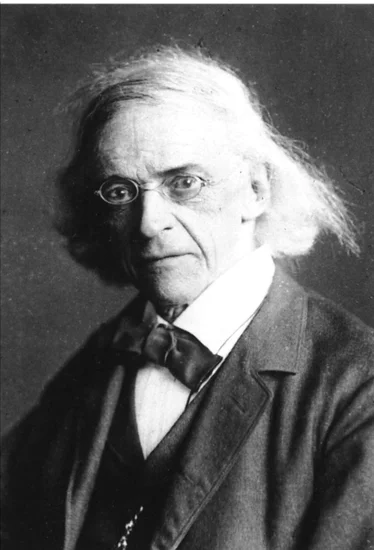
Theodor Mommsen, the distinguished German archaeologist and historian, died after a lifetime of groundbreaking scholarship. His monumental work on Roman history earned him the Nobel Prize in Literature in 1902.
Mommsen’s “History of Rome” revolutionized the study of ancient history through rigorous source analysis. His academic methods established new standards for historical research and influenced generations of scholars.
1955 – Dale Carnegie, Self-Help Author
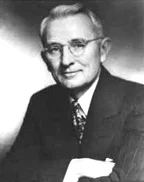
Dale Carnegie passed away, leaving behind a legacy that transformed personal development and public speaking. His book “How to Win Friends and Influence People” became one of the best-selling self-help books ever written.
Carnegie’s principles of human relations and communication skills influenced millions of readers worldwide. His methods for overcoming fear and building confidence continue to impact personal and professional development.
1972 – Ezra Pound, American Poet
Ezra Pound died in Venice, Italy, concluding a controversial but influential literary career. His innovative poetry and promotion of modernist literature profoundly shaped 20th-century American poetry.
Pound’s “Cantos” and editorial work with other writers established him as a central figure in literary modernism. Despite his controversial political views, his poetic innovations continue to influence contemporary literature.
1987 – René Lévesque, Quebec Premier
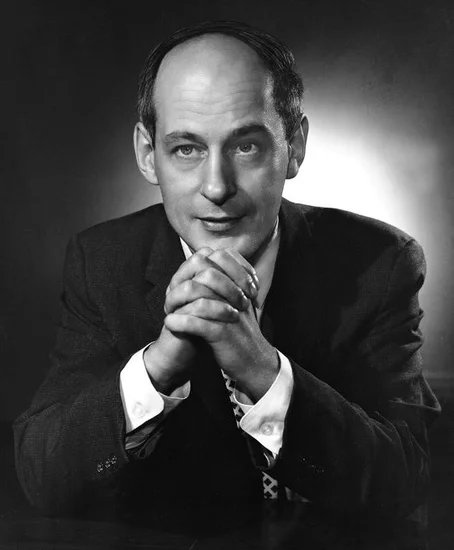
René Lévesque, the charismatic Premier of Quebec and leader of the sovereignty movement, died in Montreal. His political career was devoted to promoting Quebec independence and French-Canadian culture.
Lévesque’s Parti Québécois transformed Quebec politics and brought the independence question to the forefront of Canadian discourse. His 1980 referendum on sovereignty, though unsuccessful, permanently changed Canadian federalism.
1999 – Walter Payton, NFL Hall of Famer

Walter Payton, the legendary Chicago Bears running back known as “Sweetness,” died from complications of primary sclerosing cholangitis. His career records and sportsmanship made him one of football’s most beloved figures.
Payton’s combination of athletic excellence and community service set the standard for professional athletes. His rushing records stood for decades, and his humanitarian work continued to inspire others long after his retirement.
2022 – Takeoff, Migos Rapper

Takeoff, a member of the influential hip-hop group Migos, was tragically killed in Houston, Texas. His death shocked the music industry and fans worldwide.
Takeoff’s contributions to modern hip-hop, particularly the group’s innovative triplet flow, influenced countless artists. His untimely death at age 28 cut short a promising career that had already achieved remarkable success.
Holidays and Observances on November 1
All Saints’ Day
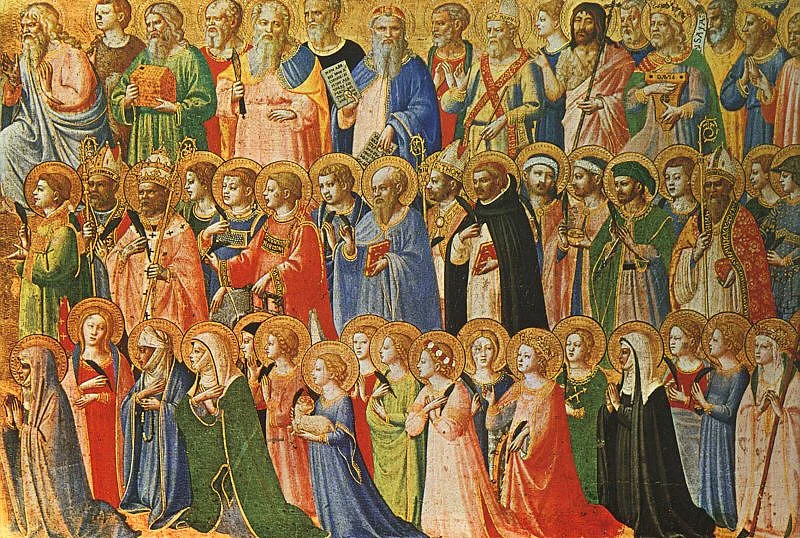
All Saints’ Day is observed as a holy day of obligation in many Christian traditions and serves as a national holiday in numerous historically Catholic countries. This sacred observance honors all saints, both known and unknown, in the Christian tradition.
The day marks the beginning of the traditional Allhallowtide season, connecting to ancient Celtic and Christian customs. Many families visit cemeteries and churches to remember deceased loved ones and celebrate the communion of saints.
Day of the Dead Begins
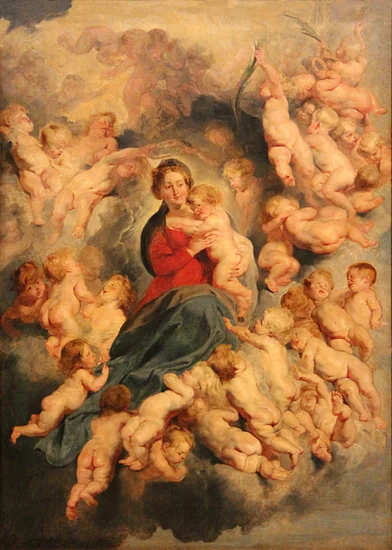
The first day of El Día de los Muertos (Day of the Dead) celebrations begins in Mexico and Haiti. This vibrant cultural tradition honors deceased family members and friends through joyful remembrance rather than mourning.
Families create elaborate altars called ofrendas, decorated with marigolds, candles, and favorite foods of the departed. The celebration blends indigenous traditions with Catholic influences, creating a unique cultural expression of life and death.
Independence Day of Antigua and Barbuda
Antigua and Barbuda celebrates its independence from the United Kingdom, achieved on this date in 1981. The twin-island nation marks this milestone with parades, cultural performances, and national ceremonies.
The independence celebration showcases the nation’s rich cultural heritage and Caribbean identity. Citizens commemorate their journey from colonial rule to sovereign nationhood with pride and festivity.
World Vegan Day

World Vegan Day promotes awareness of veganism and its benefits for animal welfare, environmental sustainability, and human health. The observance was established by the UK Vegan Society in 1994.
The day encourages people to consider plant-based lifestyle choices and their impact on global sustainability. Events worldwide showcase vegan cuisine, products, and lifestyle alternatives to promote compassionate living.
